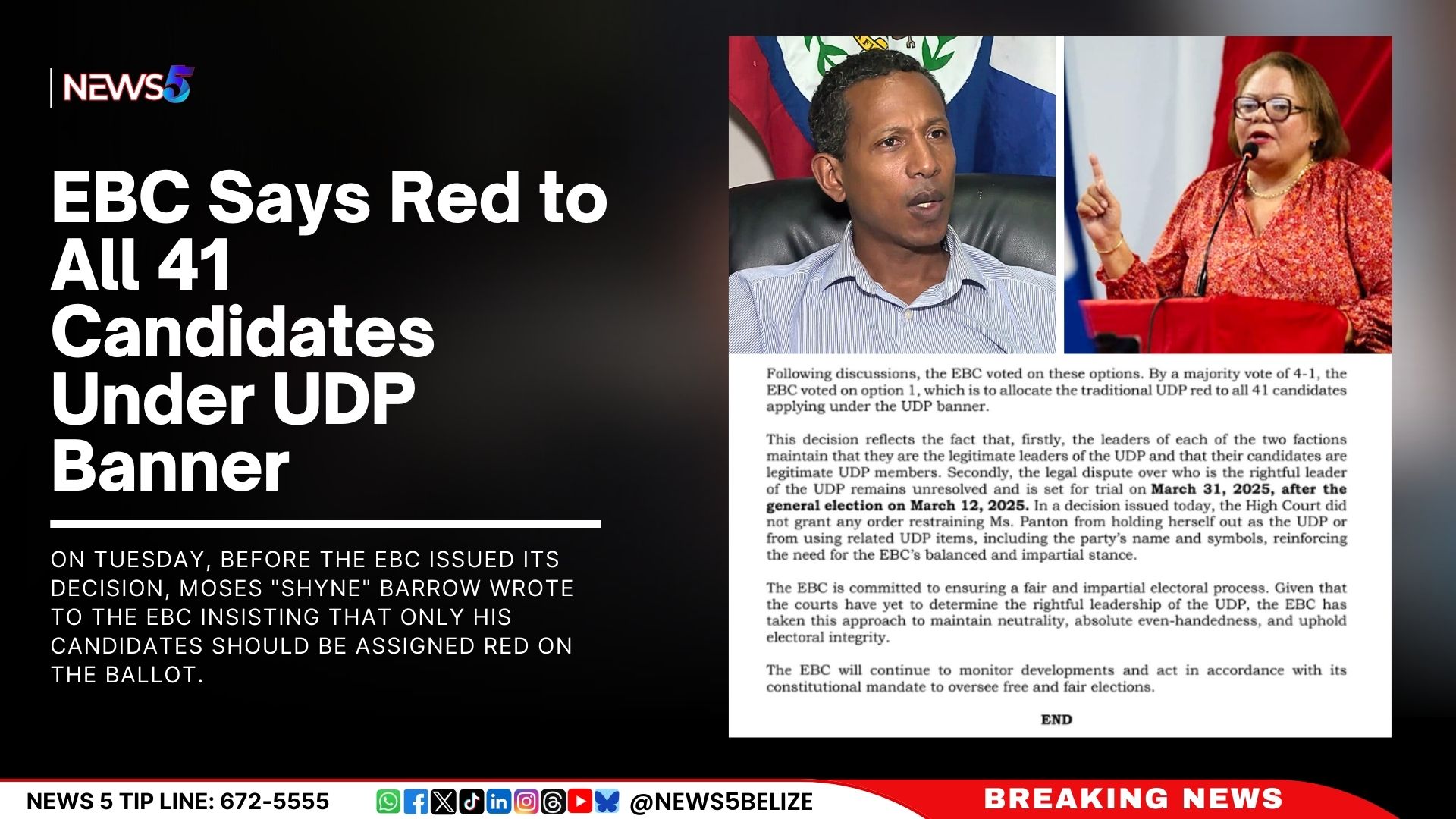The Elections and Boundaries Commission (EBC) has decided that the United Democratic Party (UDP) will be allocated the traditional red colour to all 41 candidates nominated on Monday under the UDP banner. This is despite the internal divisions and leadership disputes that have been unfolding for months within the opposition party.
In its announcement, the EBC provided three options to consider: assigning red to all candidates, assigning it to only the 25 listed by Shyne Barrow, or to only the 15 nominated by Tracy Panton.
According to the EBC, after a 4-1 vote, it opted for the first choice—assigning red to all candidates under the UDP name. “By a majority vote of 4-1, the EBC voted on option 1, which is to allocate the traditional UDP red to all 41 candidates applying under the UDP banner,” it said.
On Tuesday, before the EBC issued its decision, Moses “Shyne” Barrow wrote to the EBC insisting that only his candidates should be assigned red on the ballot. He warned that if the EBC does not make the right decision, he will take legal action.
Barrow stated, “We are waiting for the official decision of the commission, and then we will proceed with civil action if the decision is not fit. The Election and Boundaries has no right to recognise anybody who claims to be a UDP when we have sent them an official list of who the UDP are when all that will do is cause confusion in the constituencies where we have competing claims.”
